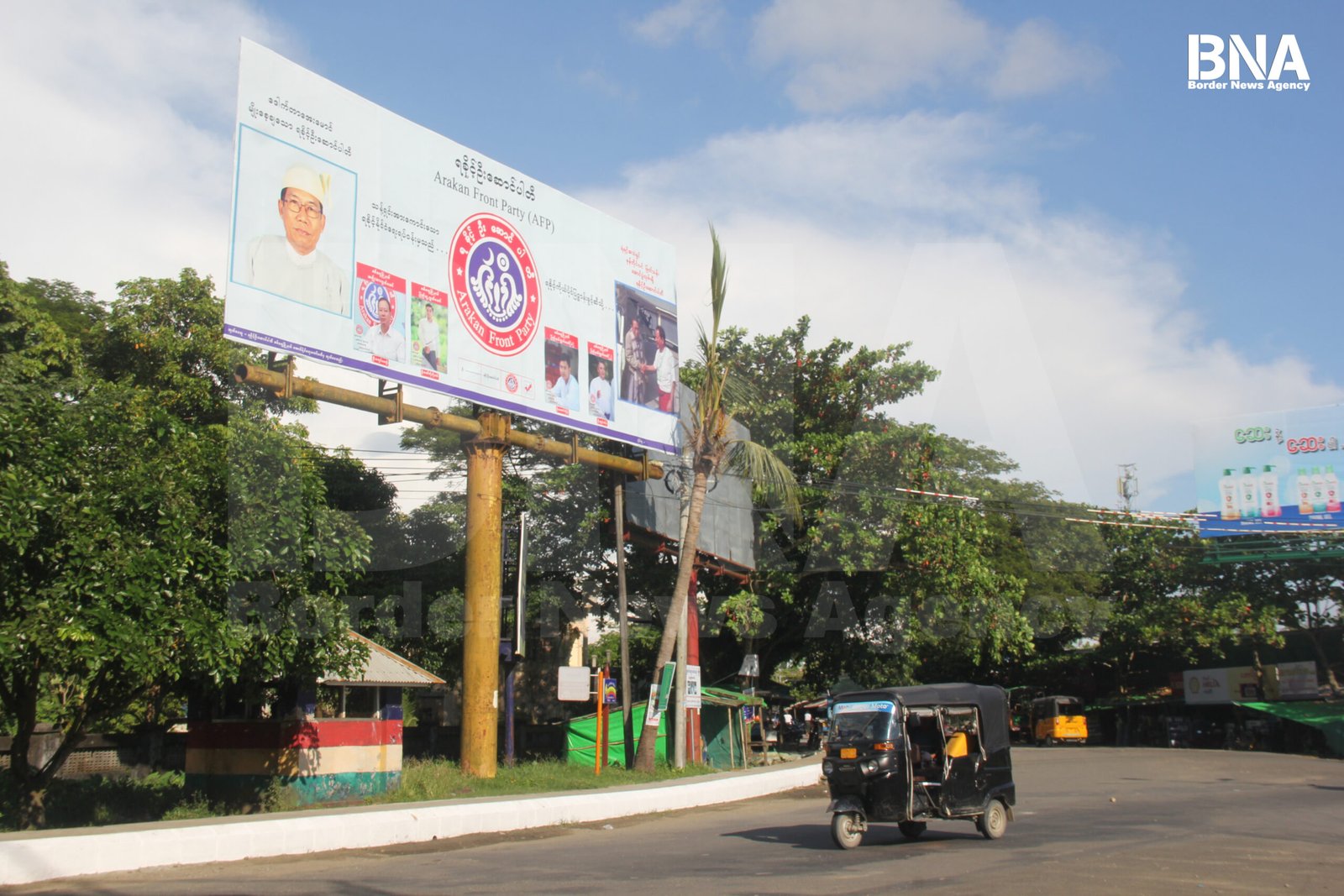Border News Agency
Sittwe, May 25
Political analysts say that the upcoming election planned by the Myanmar junta may see a low voter turnout.
The junta has officially announced that the election will be held either in the last week of December 2025 or the second week of January 2026.
However, political analysts say that if the military junta proceeds with an illegitimate election, it could result in consequences such as collecting additional census data without actually gaining votes.
“If we think about what could happen, there’s a situation where they might take extra votes using the census data without actually receiving real votes,” said U Wayama, a monk from the Spring Revolution Multi-faith Network, in an interview with Border News Agency.
He continued, “Why is that? Because back when the 2008 Constitution was drafted, during the time of Cyclone Nargis when many people had died, this regime still used those names in the census and collected votes. That constitution was written according to their will, and the people didn’t even realize it. It was an illegitimate military constitution. Just like how they drafted an unlawful constitution and took illegal votes, if the Arakan Army fails to take over the remaining three towns, the junta could potentially organize elections in those areas as much as they can.”
The Myanmar junta has informed its troops and their families that the upcoming election will definitely be held by the end of 2025, and that they are working urgently to ensure the election takes place as planned.
Although the junta says it will hold an election, most of the towns in the Arakan region are now fully captured and controlled by the Arakan Army.
Political analysts say it would be more advantageous if the Arakan Army could capture the remaining three townships – Sittwe, Kyaukphyu, and Manaung – before the election takes place.
“However, I believe the voter turnout could drop to nearly zero. That’s why, if the remaining towns can be swiftly captured, it would be the best outcome,” said U Wayama from the Spring Revolution Multi-faith Network in an interview with Border News Agency. “On behalf of the people, I would like to strongly urge the AA Commander-in-Chief and the entire Arakan Army to act quickly.”
According to the Myanmar junta’s election commission announcement released on May 16, the date for the election has already been set.
Political analysts say that if the election actually takes place, it will be far less legitimate than the situation under the 2008 Constitution. It could severely undermine the junta’s authority, interests, and reputation.
“If it does happen, it will only amount to a puppet government,” said General Min Tun, Chairman of the Arakan National Council, in an interview with Border News Agency.
“Even under the 2008 Constitution, although elections were held across Rakhine State and candidates were able to contest freely, Rakhine people were never allowed to appoint a chief minister of their own choosing. The state parliament had no voice in the Union Parliament either. So, whoever comes to power through this upcoming election – whoever participates – it will be nothing more than a puppet government. Compared to the situation under the 2008 framework, there will be significantly less authority, fewer benefits, and far more damage to dignity.”
As most towns in the Arakan region are now under the control of the Arakan Army, the junta is reportedly mobilizing Rakhine people living in Yangon, urging them to participate in the upcoming election by casting their votes there. This move has drawn criticism from observers.
Currently, the junta is only able to maintain control over Sittwe, Manaung, and Kyaukphru. However, clashes are still ongoing in Kyaukphru between the two sides.
In the Arakan region, the Arakan Front Party (AFP) led by Dr. Aye Maung has officially registered as a political party and is reportedly cooperating with the military junta, according to political analysts and local residents in Arakan.
The military junta’s election commission has officially stated that the upcoming election will use both the First-Past-The-Post (FPTP) system and the Proportional Representation (PR) system.






